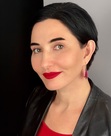The Good We Can Do In One Small Moment
How My Pharmacist Stopped Time
I just walked into my pharmacy to pick up a prescription. When the elderly gentleman in front of me got to the counter, he said something to the pharmacist. Tears welled up in her eyes. Everyone got quiet. Then, without hesitation, she slowly walked around the counter and hugged him, patting his shoulder as they cried together.
None of us in line knew what was happening, but all of us went from strangers rushing to our next very important thing to a unified little community. As the two cried together, uninhibited in their collective grief, we all stood by silently. It felt as if we knew the man, and our hearts collectively went out to this stranger. We knew nothing about the specifics, and we didn’t have to. Pain is a universal human experience.
After about five minutes the pharmacist returned to the counter. Without hesitation, her co-worker walked from the counter to the man and hugged him. She too cried softly as he continued to quietly weep, patting him gently on the back. Eventually, from their murmurs, it became clear the man’s wife had died. She was the love of his life.
The first pharmacist called me over. “I’m sorry you had to wait,” she said, still teary. She knows I squeeze too much into my day and she works hard to have things ready to go for me. She’s like this with everyone — mindful of her job, and dedicated to doing it right.
“No, no. It’s ok!” I said, “I feel like I should give you a hug.”
“It’s just you know someone your whole life and then they’re gone,” she said with such genuine care.
I broke the unspoken counter barrier and gently touched her arm. “I’m so, so sorry.”
She smiled at me, still teary. “Thank you, Eliza.”
When I left, the second pharmacist was still with the grieving husband, talking to him in comforting hushed tones. They were smiling through tears now, remembering his beloved wife. In that moment, it was exactly what he needed.
The image of that grey haired, hunched over man laying his head on those women’s shoulders, tears falling down his face as they shared his grief, is one I will never forget. It’s what living in the moment really looks like. It’s what empathy and kindness looks like. And it’s what loving your job looks like. I left moved, hopeful, and inspired.
The Power of Naming Small MomentsWe have so many words for the everyday cruelty humans inflict upon each other. Teasing. Backstabbing. Gossiping. Microaggressions. Yet in trying to describe this moment to friends I realized we don’t have nearly as many specific terms for moments like this. We should.
Words provide a framework to inspire our actions. Where are the varied words which describe the countless small, but important, ways we can love each other, comfort each other, and protect each other? Where is the word for a moment like this? These simple but critical moments collectively combat the world’s darkness, and we need more words for them.
Here’s my first volley...
Microbenevolence /mīkrōbəˈnevələns/ (verb) Those small but critical actions which spring from our conscience, and our hearts, and make a difference. Direct, subtle, and intentional care for humankind.
Microbenevolence.
Practicing microbenevolence, even for a few moments, is emotionally risky. It’s so much easier to stay safely behind our respective counters, to shut out the experiences of others. I know I’m guilty of this - I don’t see what’s right in front of me all the time. Why? I put on blinders. After all, I have places to go, things to accomplish, and those all important “next things” to check off my endless list…
But those quiet, unflashy moments when I do practice microbenevolence, or see others practicing it, are the moments I remember - I always leave them feeling grateful and uplifted. They can seem unimportant. Yet, inch by inch they create unity, community and hope in our sometimes heartbreakingly callous and divided world. Imagine if each of us committed to practicing microbenevolence mindfully, consistently, and courageously every day.
Our world would be different. It would be better.
Natasha Hirt, Illustrator I’m an MIT undergrad aspiring to empower people to design their own futures through art, science, and communication. When not studying architecture, collaborating with Eliza, or interning at the MIT Media Lab, I’m spending time with friends and biking around Boston.



